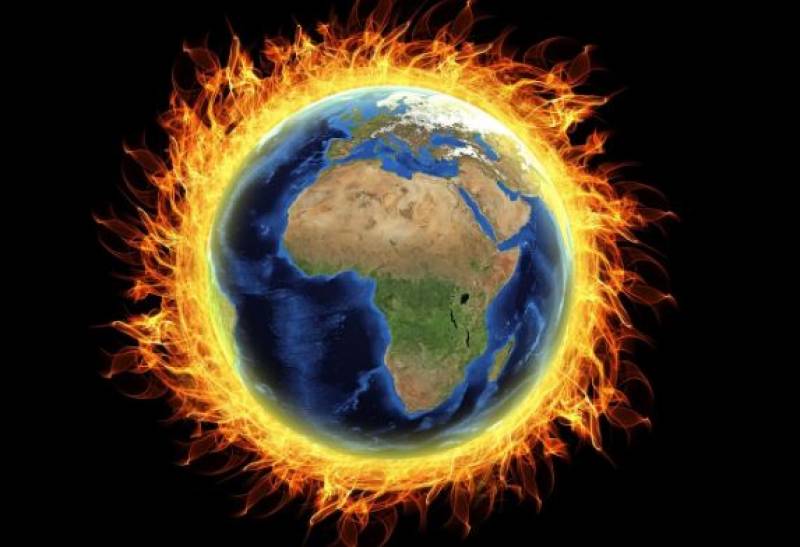- Region
- Vega baja
- Marina Alta
- Marina Baixa
- Alicante
- Baix Vinalopo
- Alto & Mitja Vinalopo
-
ALL TOWNS
- ALICANTE TOWNS
- Albatera
- Alfaz Del Pi
- Alicante City
- Alcoy
- Almoradi
- Benitatxell
- Bigastro
- Benferri
- Benidorm
- Calosa de Segura
- Calpe
- Catral
- Costa Blanca
- Cox
- Daya Vieja
- Denia
- Elche
- Elda
- Granja de Rocamora
- Guardamar del Segura
- Jacarilla
- Los Montesinos
- Orihuela
- Pedreguer
- Pilar de Horadada
- Playa Flamenca
- Quesada
- Rafal
- Redovan
- Rojales
- San Isidro
- Torrevieja
- Comunidad Valenciana
article_detail
This is the dark side of summer: Hotter heatwaves and worse wildfires
As the planet swelters through a scorching July, NASA confirms that the 22nd of the month was the hottest day ever recorded

The Earth has just endured its hottest day in recorded history, with July 22 this year surpassing all previous temperature records.
For anyone sweating through the Spanish summer, this news will come as no surprise, as the preceding days had already broken records, with both July 21 and 23 reaching unprecedented highs.
It’s hard to imagine anything quite as bad as the series of punishing heatwaves that blasted through Spain last summer, but this year has indeed beaten out the previous record set in July 2023.
According to NASA, these extreme temperatures are part of a worrying long-term warming trend fuelled by human activities, particularly the emission of greenhouse gases.
“In a year that has been the hottest on record, these past two weeks have been particularly brutal,” NASA Administrator Bill Nelson said in a statement.
It comes amid a wave of wildfires in Spain that are being exacerbated by the warm, dry temperatures.
A lack of rain and higher temperatures dry out the countryside and the ground more, encouraging the spread of forest fires more quickly.
As the planet continues to swelter, it is clear that climate change is not just a future threat but a present-day crisis.
The NASA analysis is based on data from two systems: the Modern-Era Retrospective Analysis for Research and Applications, Version 2 (MERRA-2), and the Goddard Earth Observing System Forward Processing (GEOS-FP). By combining millions of global observations from various instruments and satellites, these systems provide valuable insights into the planet's temperature trends.
The MERRA-2 climate reanalysis ensures the use of the highest-quality observations, while GEOS-FP provides near real-time weather data.
The European Union’s Copernicus Earth Observation Programme has also independently analysed the data, and their results align with NASA's findings. This consensus confirms the urgency and severity of the global warming trend.
According to scientists at NASA’s Goddard Institute for Space Studies, this latest record-breaking temperature comes after 13 consecutive months of monthly temperature records.
As the planet continues to warm, NASA has reiterated the need to redouble our global efforts against climate change. The emission of greenhouse gases, primarily from industrial activities, is driving up global temperatures and leading to more frequent and intense adverse weather events, including heatwaves and more destructive wildfires.
Join our Spain Weather Watch Facebook group for regular updates
Image: Pixabay
staff.inc.ali
Loading
See more environmental news about Spain:
OR
Sign up for the Spanish News Today Editors Roundup Weekly Bulletin to get a comprehensive email with all the week’s news for Spain, Murcia, Alicante and Andalucía.
Get a sneak peek – here are a few of our recent Subscription Bulletins:
Discount Special Offer subscription:
36.95€ for 48 Editor’s Weekly News Roundup bulletins!
Please CLICK THE BUTTON to subscribe.
Contact Murcia Today: Editorial 000 000 000 /
Office 000 000 000





















